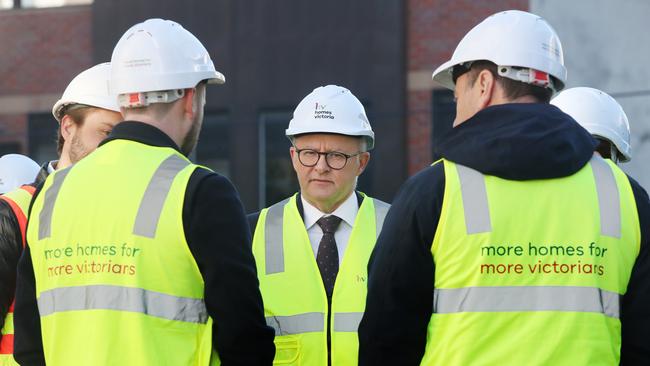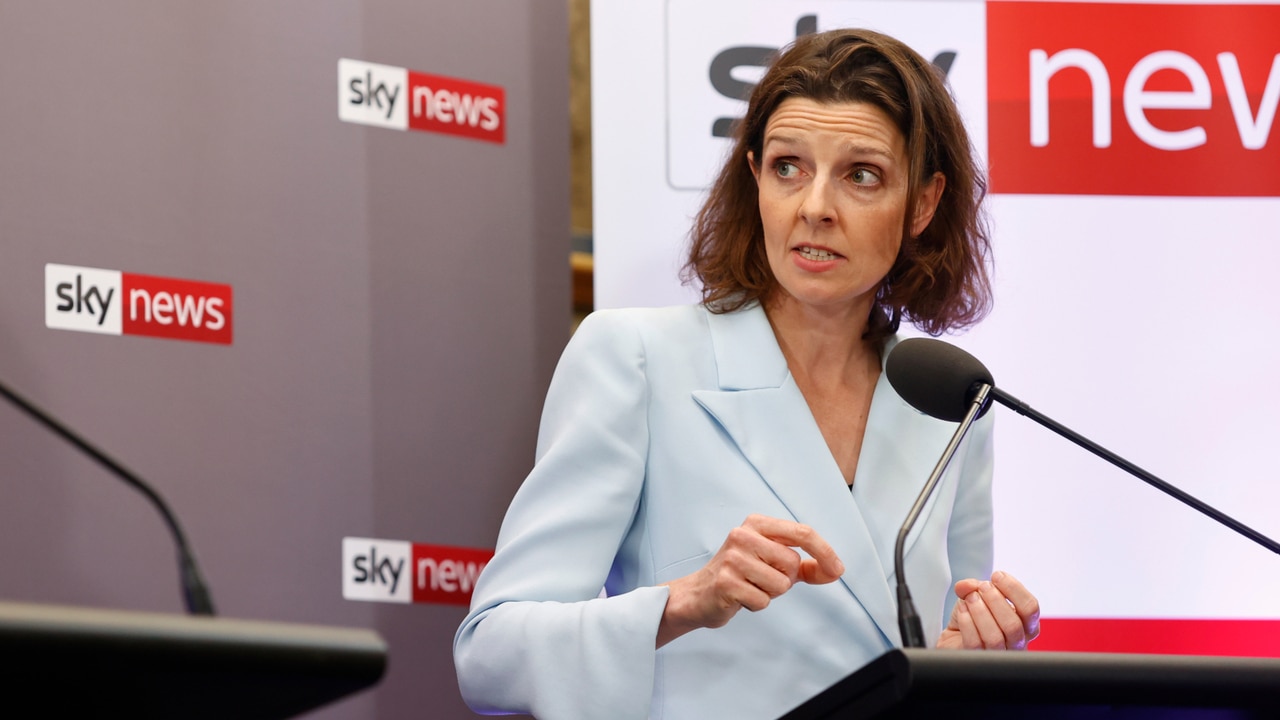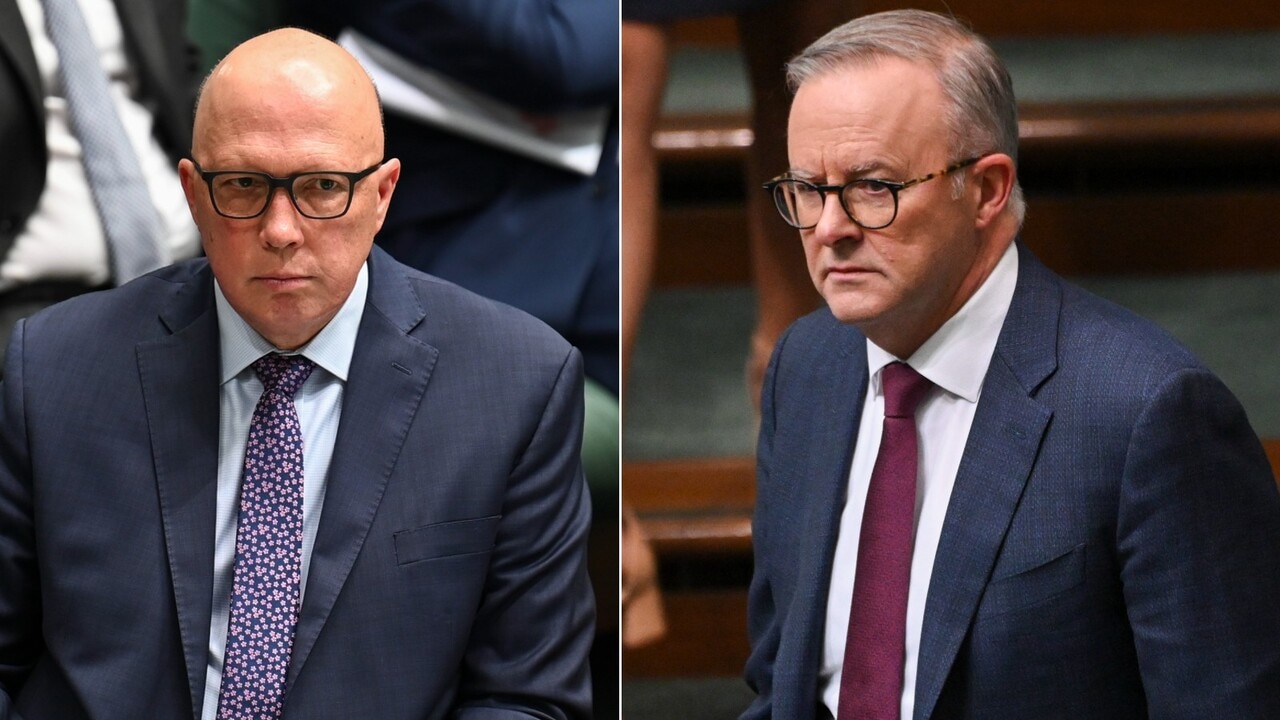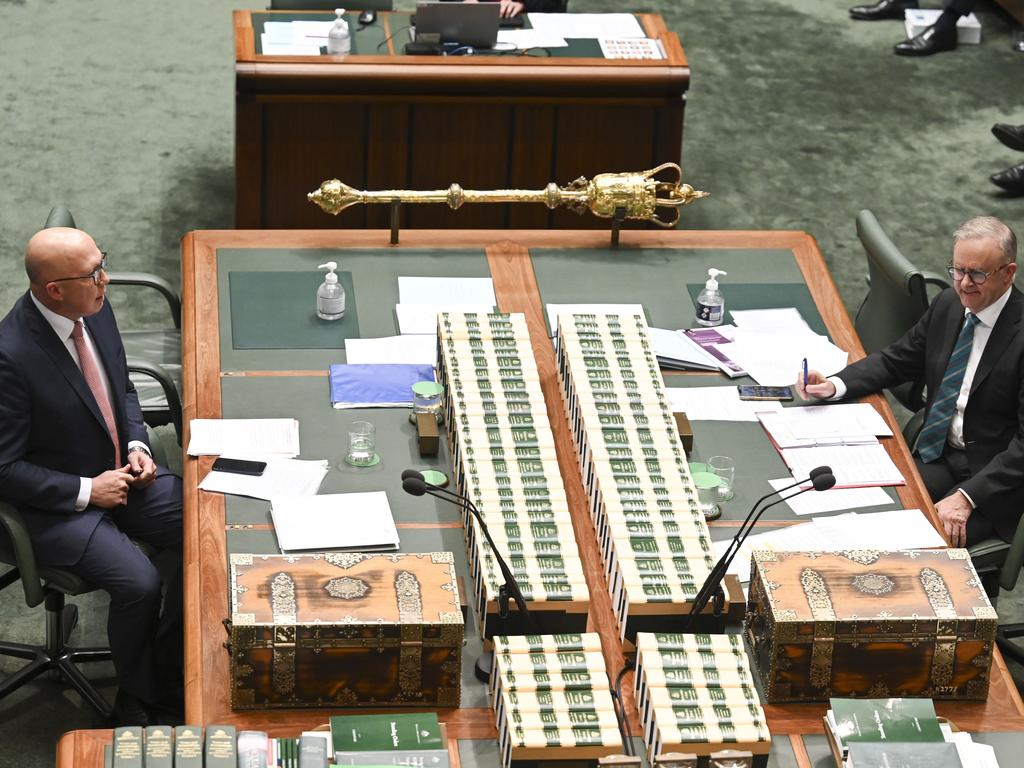Labor’s housing fix proves marginal at best
Federal Labor has poured tens of millions of dollars into programs based in marginal, battleground and safe Labor seats to fund more local council planning studies, reviews and bureaucrats.

Anthony Albanese’s Housing Support Program has poured tens of millions of dollars into marginal, battleground and safe Labor seats – including $3m for the Prime Minister’s local council – to fund more planning studies, reviews and bureaucrats at local government level.
As Peter Dutton ramps up the Coalition’s policy pitch to voters ahead of next year’s election, the Albanese government has come under pressure over the speed, complexity and funding focus of its $32bn Homes for Australia plan to ease the housing crisis.
Analysis of successful applicants under Stream 1 of the $1.5bn Housing Support Program shows significant funding was funnelled to councils and state governments pitching proposals to improve planning efficiency in key Labor electorates and Coalition seats targeted by the ALP and teal independents.
Almost $50m was approved for councils and Labor state governments to: hire more planning staff and consultants; establish a new Flinders University bachelor’s degree in urban and regional planning; develop artificial intelligence tools to streamline planning approvals; review masterplans; and undertake feasibility studies.
The esoteric programs include a $275,000 Tweed Shire Council plan to “deliver five design-led case studies interrogating different affordable housing typologies and scales across different settlement locations” in the northern NSW seat of Richmond.
One senior local government source on Wednesday warned that haphazard commonwealth funding intended to streamline planning processes risked “duplicating existing plans, stalling already slow approval processes and delaying new housing stock”.
The Australian can reveal funding was allocated for councils and state governments in key government seats targeted by the Coalition and Greens including Reid, Richmond, Blair, Lingiari, Lyons, McEwen, Robertson, Dobell, Werriwa, Hunter, Paterson, Barton, Macnamara and Parramatta.
Three proposals totalling $1.435m in Reid, which was won by Labor MP Sally Sitou in 2022 after almost a decade in Coalition hands, were rubber-stamped.
The north Queensland electorate of Leichhardt, held by retiring veteran LNP MP Warren Entsch and a key seat targeted by Labor, attracted almost $2.1m in funding for the Cairns, Kowanyama and Torres Shire councils. Councils in other Coalition or independent-held seats targeted by Labor and the teals – including Braddon, Bass, Cowper, Fowler, Herbert, Casey and Deakin – also received taxpayer funds.
Across 80 successful bids totalling $49.89m, approximately $23.58m was allocated to programs situated in Labor seats, $3.44m was reserved for Queensland, South Australian and Victorian Labor state government departments and more than $7m was distributed to councils in Coalition-held election battleground seats.
Mr Albanese’s own Inner West Council secured $3m in funding to prepare “precinct master plans for five housing investigation areas” and procure and implement a “new geographic information system”.

With Labor on track to fall short of its promise to build 1.2 million new, well-located homes by mid-2029, a pre-election housing brawl erupted on the weekend after Mr Dutton and opposition housing spokesman Michael Sukkar unveiled the Coalition’s plan to establish a $5bn fund to unlock up to 500,000 new homes. Government ministers immediately accused the Opposition Leader of copying Labor’s Housing Support Program.
The program, initially valued at $500m when announced in August last year, was expanded to $1.5bn in the May budget. The additional $1bn priority work stream is geared to providing funding to state and territory governments for “significant enabling infrastructure” and to deliver social housing. The remainder of the initial $500m is available to local and state governments until mid-2025.
Senior housing industry figures on Wednesday said they expected the Albanese government would roll out a flurry of funding announcements in coming months ahead of a likely March or April federal election.
The Department of Infrastructure, which oversees the Housing Support Program, says Stream 1 funding was based on an open and competitive merit-based program with published guidelines, and that successful applicants came from a range of councils.
The Australian can reveal applications for Stream 2 funding, which closed on August 16 and prioritises enabling housing infrastructure including footpaths, roads and parks, will be finalised in coming months.
Mr Sukkar said the Coalition’s plan – focused on greenfield sites and applying a “use it or lose it” rule where funding terminates if no progress is made on projects within 12 months – had been endorsed by Master Builders Australia, Housing Industry Association, UDIA and Property Council.

The Coalition argues the difference between its Housing Infrastructure Program proposal and Labor’s plan is that funding will not be transferred directly to state and territory governments. Mr Dutton’s four-year funding scheme, distributing a mix of grants and concessional loans for water, power, sewerage and access roads, will be available to local governments, state and territory utilities, property developers and special purpose vehicles.
“Labor’s so-called infrastructure fund has funded planning proposals, background studies and feasibility studies … the Coalition does not consider this to be infrastructure, nor do everyday Australians,” Mr Sukkar said.
“Not only has Labor’s so-called infrastructure fund been used for everything but housing enabling infrastructure, it also seems to have been improperly used as a slush fund for Labor and target seats.”
Infrastructure Minister Catherine King said: “Anyone who is serious about delivering more homes in this country knows that housing construction is more than just turning up to a block of land with a shovel. It is unsurprising the opposition thinks so little of planning given their housing policy has no time frames and plans to burden local councils with debt through concessional loans.
“The Albanese government is working with states and territories to speed up the delivery of housing enabling infrastructure such as roads, sewerage, water and energy, with oversight through a federation funding agreement and an implementation plan from the states and territories.
“Unlike the Opposition’s half-baked attempt at copying Labor’s policies, this will deliver real projects and real homes, ensuring Australians can get into housing more quickly.”
The Coalition on Wednesday accused Housing Minister Clare O’Neil of rushing out a $26m southwest Sydney housing funding announcement for roads, sewerage, water and power in response to Mr Dutton’s new housing fund. Ms O’Neil’s spokesman said “the Albanese government launched several programs, worth several billion dollars, to support enabling infrastructure long before Peter Dutton’s announcement last week”.







To join the conversation, please log in. Don't have an account? Register
Join the conversation, you are commenting as Logout